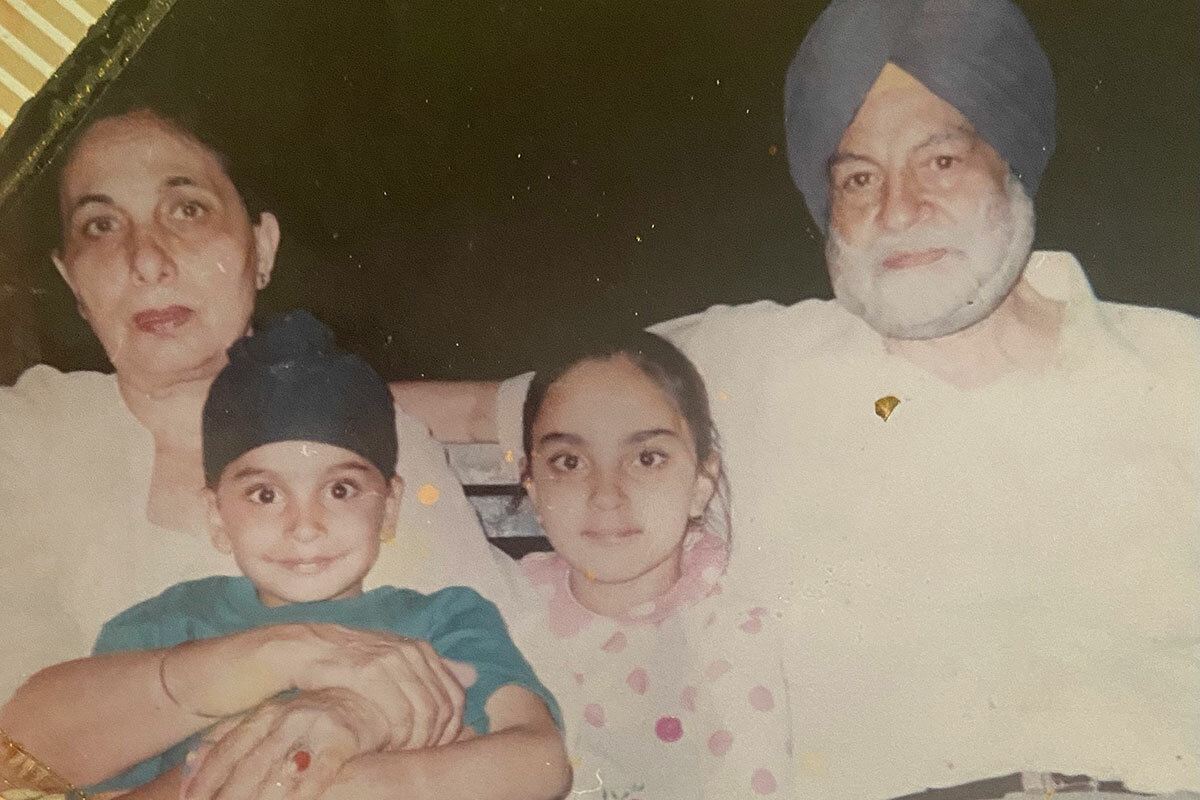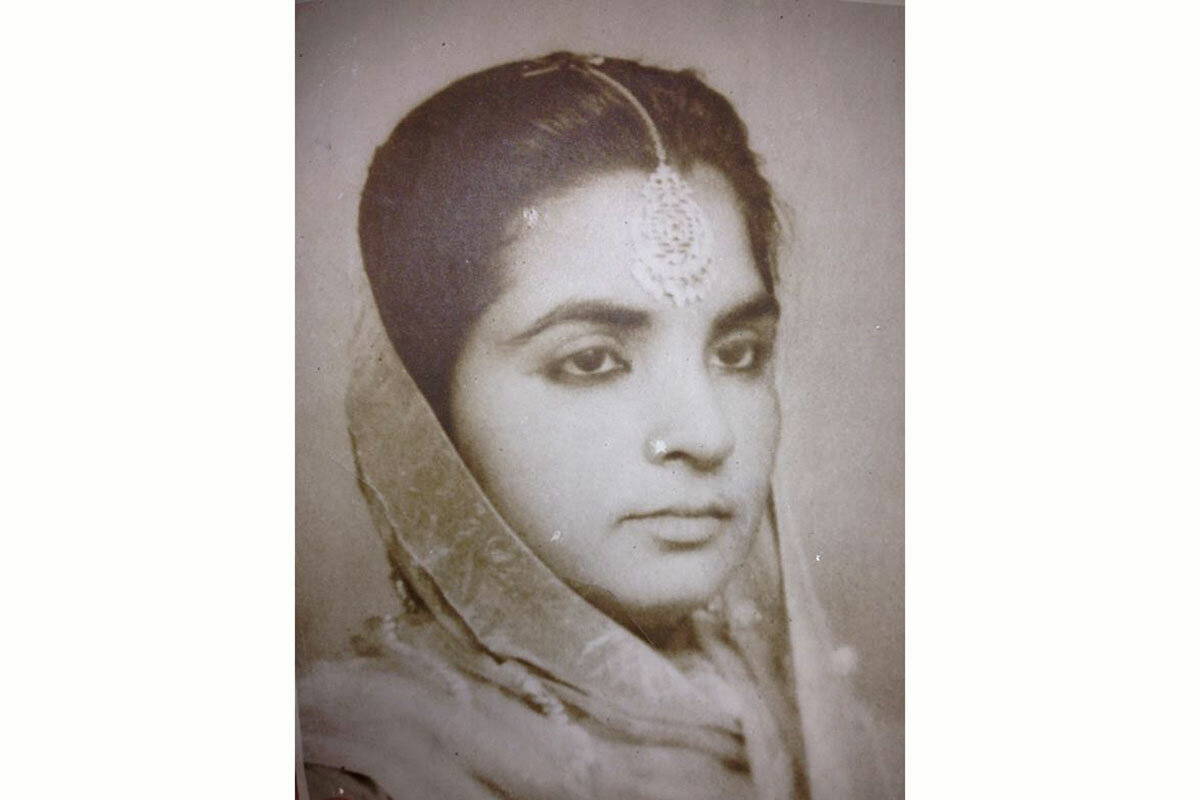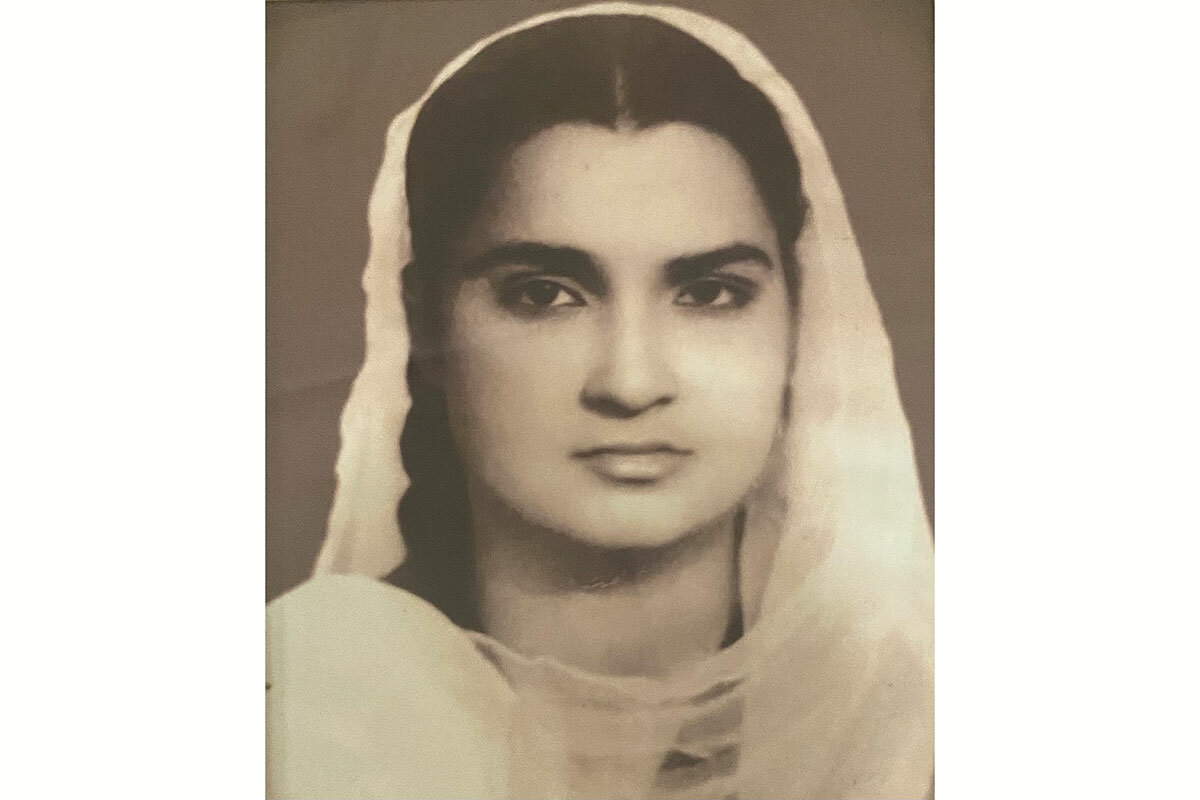Her family fled Pakistan for India in 1947. Here’s what they left behind.
Loading...
As a third-generation Sikh migrant born and raised in Delhi, I was always aware that during Partition members of my family had crossed the border from newly created Pakistan to lay down roots in India. But it wasn’t until my late 20s that I learned of a distant aunt who’d been abandoned during her family’s chaotic evacuation in 1947. The year after she was left behind, a family friend spotted her alive and apparently well in Pakistan. She had married a local and converted to Islam. But instead of celebrating this news, her siblings and parents declared her dead to preserve the family’s honor.
When I first heard this story, I was aghast. In the years that followed, however, marriage, motherhood, and a change in career from being a lawyer to a writer helped me look at things differently.
Why We Wrote This
A story focused onGrappling with her family’s actions during Partition helped our contributor discover a new well of compassion – a quality needed now more than ever.
Faced with the loss of everything they held dear, including their homeland, my family perhaps should not be blamed for attempting to preserve the one thing they had control over – the legacy of their religious leaders, who fought back against forced religious conversion and called on followers to do the same.
Though I cannot condone the behavior of my elders, I find it increasingly easy to empathize with them.
Every August, my countrymen and those of our neighbor Pakistan collectively rejoice.
After all, our shared Independence Day – testimony to the long and arduous struggle for independence from our British colonizers – is just cause for celebration. Yet, for a sizable section of the populace, this occasion is marred by the memory of the traumatic event that occurred alongside it: the brutal and reckless partition of the subcontinent into two nations, Muslim Pakistan and secular India, in August 1947.
Growing up, I was drawn to the Partition portrayed in literature and movies. I knew millions were displaced or killed by the communal violence that erupted across the subcontinent, particularly in places like Punjab, where my family is from, which was divided by the new border.
Why We Wrote This
A story focused onGrappling with her family’s actions during Partition helped our contributor discover a new well of compassion – a quality needed now more than ever.
Yet, as a third-generation Sikh migrant born and raised in Delhi, I viewed Partition as a largely abstract concept. I was aware that certain members of my family had crossed the border to escape riots and lay down roots in Indian soil, but I did not understand the details of this journey – or how their discovery would force me to expand my worldview in ways that were uncomfortable but ultimately enriching.
It wasn’t until 2017, when the 1947 Partition Archive released an interview with my paternal grandfather, that the stark realities of Partition came into focus for me. As I read my grandfather’s account of being a young army officer watching trains brimming with bodies of dead Muslims move toward Pakistan, I wondered why we never spoke about this incredibly difficult period in his life.
Perhaps in my naiveté, I didn’t know to ask, and in his reticence, he didn’t think to tell.
His story inspired me to delve deep into my family’s Partition experience, and I soon learned that my maternal grandmother, or Naniji, had migrated with her family from the West Punjab city of Rawalpindi to Delhi in 1947.
Like my grandfather, Naniji had died by the time I started investigating my family history, so it was her son, my uncle, who shared her story with me.
As religious rioting began to spread throughout newly created Pakistan, Naniji’s father, who held an exalted position as the local bank manager, sent his wife and their brood of eight young children; one newly married daughter, Jeet Kaur; and the daughter’s husband to Delhi while he stayed behind to wrap up some business affairs.
At the station, as the family was boarding the train, a group of hooligans kidnapped Jeet Kaur. Her husband beat a quick retreat, while the younger children, traumatized at seeing their beloved sister left behind, created a ruckus – but to no avail. Every person on that train was mourning a deep loss; the cries of aggrieved children were easily ignored, and soon buried in the silence that follows the trauma of survival.
According to my uncle, a family friend who worked as a government pilot spotted Jeet Kaur the following year. He reported that she had converted to Islam, married a local, and seemed to be expecting his child.
Instead of celebrating this news, Jeet Kaur’s stoic mother – my great-grandmother – declared her daughter dead in an effort to preserve the family’s honor. With time, the siblings, too, chose to believe their sister dead.
Though the family was successful and happy by all outward appearances, the strain of losing their sister revealed itself in the acute mental health issues of the oldest brother, and in the vitriolic conversation of the younger brothers whenever Muslims were mentioned.
It was only years later, when their children – second-generation migrants – learned the facts about Jeet Kaur, that her “death” was challenged in any way. The more forward-thinking youngsters were upset, but felt powerless to do anything about it.
By the time my generation arrived in the 1980s and ’90s, the “otherness” of Muslims had ceased to evoke such serious negative emotions. When I moved to London to pursue a master’s degree in the early 2010s, I felt impervious to religious and national differences. There, I made friends from both sides of the border, bonding over our shared culture, language, and foods. We created our own narrative, and it effectively put the Partition in a place that seemed almost fictional.
Years later, when I learned of my distant aunt, I was aghast. I had read novels about women being killed by their own family to prevent them from being raped by members of another faith, or of women being left behind and declared dead to maintain the family’s honor. It seemed inconceivable to me that the love for a daughter or sister could so easily be cast aside in the face of saving perceived family honor. But now, my own family was guilty of this injustice.
At first, I was extremely upset, and questioned my uncle. Where did the pilot find her? Why didn’t anyone in the family go back? But he was merely the messenger – most of my grandparents’ generation were gone, and the time for debate had passed.
In the years that followed, however, I learned to look at things differently. Marriage, motherhood, and a change in career from being a lawyer to a writer helped me open my worldview to other perspectives.
It eventually dawned on me that the act of abandoning this young girl in Pakistan was a result of centuries of social conditioning, dating back to the origin of the Sikh religion itself. Our 10th and final Guru, Gobind Singh, formed a military sect known as the Khalsa – literally “the pure” in Punjabi – which was called to fight the forced conversions of Hindus and Sikhs into Islam by 17th-century Mughal rulers. The Khalsa chose death over conversion, exemplified in the story of the Guru’s two younger sons, ages 9 and 6, who chose to be bricked alive over converting. Their sacrifice remains an inspiration to Sikhs today.
Faced with the loss of everything they held dear, including their homeland and family, these hapless children and their lonely mother perhaps should not be blamed for desperately attempting to preserve the one thing they had control over – the legacy of their Gurus, which was their very identity.
At the same time, I cannot judge my aunt for choosing to convert. I would also like to believe she lived a better life than she might have with her original husband, who abandoned her at that train station back in 1947.
Though I cannot condone the behavior of my elders, I find it increasingly easy to empathize with them. I can only hope I’ll never have to make the sorts of decisions my grandparents and great-grandparents did, or face such a sudden, monumental loss. I can never know how I would react in their position.
What I can do is try to foster a more inclusive worldview, for myself and my children, in which everyone is worthy of understanding.
Seventy-five years on, as the deeply embedded religious intolerance in my own countrymen begins to rear its head once again – this time buoyed by a Hindu nationalist political agenda and fueled by fears of forced conversions – this capacity for compassion is more important than ever. Isn’t that what democracy, of which we so proudly proclaim ourselves the largest proponent, is all about?
Noor Anand Chawla is an independent journalist based in New Delhi. She contributes to various publications and blogs at www.nooranandchawla.com.










